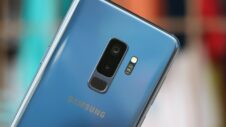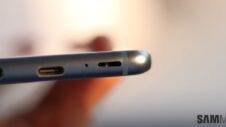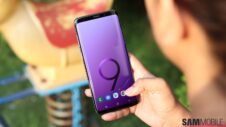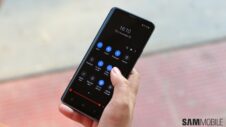The Galaxy S9 and Galaxy S9+ are finally here, and with them come newly positioned fingerprint sensors. This was one of the most complained about design flaws on the 2017 flagships, the Galaxy S8 and Galaxy Note 8. My explanation for the reasoning behind the exorbitant amount of complaints stems from the fact that the majority of the world has small hands. Therefore, the sensor placement to the right of the camera was just a bit out of reach for most. Well, Samsung took that to heart and made the highly sought-after change. The fingerprint sensor now resides below the camera on both the Galaxy S9 and Galaxy S9+, but even that may be an issue for some folks.
Galaxy S9+ fingerprint sensor placement can’t please everyone
Alongside the aggravation behind the Bixby button for most users, the placement of the fingerprint sensor was most definitely quite high on the list of complaints. With Samsung a company that keeps its ear to the streets and makes changes accordingly, we have a differently placed sensor on the new flagships. But, for those with larger hands, like myself, it is now a hassle as the sensor is a tad too low. This is especially an issue on the S9+. The dual rear camera means the fingerprint sensor is placed lower on the body on the S9+ compared to the S9. Yes, the Galaxy S9 is shorter and should technically have the same problem, but since the S9+ is heavier, one tends to grip it higher up, which compounds the issue.
I had no issues at all with the placement of the sensor on the 2017 flagships; my finger rested right on the scanner. Others got used to it after a while. The previous placement appeased larger-handed folks, though, whereas this year it is kind of a middle ground for everyone. All in all, it is a solid move from Samsung considering the fact that the majority of the world has small to medium-sized hands.
Placement aside, the new sensor has seen other improvements as well. If you recall in years past, the registration of one’s fingerprint initially called for repeated vertical swipes. Then, it called for repeated soft touches on the sensor until reaching 100 percent. Well, now, a fingerprint can be registered in three vertical swipes or less. Executing the action slow enough enables the propensity to complete registration in one fell swoop.
Taking the whole device into consideration, we're quite pleased with them both. The camera is excellent, the display is amazing, and the speakers are a major upgrade, and we will lay out our thoughts in detail in our Galaxy S9 review. For now, if you've managed to play around with the S9 or S9+, let us know in the comments whether or not the fingerprint sensor this year is in the right place for you.
Also Read: Samsung Galaxy S9 hands-on






